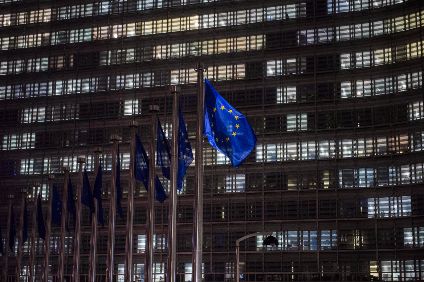
The European Commission has acted to prohibit so-called dual quality food across the EU following pressure from central and eastern European member states.
It announced on Wednesday (11 April) that an update to its Unfair Commercial Practices Directive – as part of a customers’ charter dubbed ‘New Deal for Consumers’ – will help national authorities to determine whether a company is breaking EU law when selling products of dual quality in different countries.

Discover B2B Marketing That Performs
Combine business intelligence and editorial excellence to reach engaged professionals across 36 leading media platforms.
The action has been taken following complaints going back more than a year from member states such as The Czech Republic and Slovakia, which claimed manufacturers from western Europe were sometimes providing an inferior version of their food in the east despite the products looking the same as that sold in the west.
Last July, for example, the Czech Agriculture Minister, Marian Jurecka, claimed on his Twitter feed tests carried out by his ministry and the Prague-based Institute of Chemistry and Technology showed products such as luncheon meat and fish fingers in Czech supermarkets often had less of the main ingredients than the version sold in Germany.
In October, the Prime Ministers of the four Eastern European countries at the centre of the food products dual standards row – which also included Poland and Hungary – met with EU Commissioners at a summit in Bratislava, the Slovak capital.
Their lobbying appears to have now paid off.

US Tariffs are shifting - will you react or anticipate?
Don’t let policy changes catch you off guard. Stay proactive with real-time data and expert analysis.
By GlobalDataThe Commission said changes to the directive make explicit it may be illegal to market products as being identical in several EU countries, if their composition is “significantly different”.
“Business operators are free to market and sell goods with different composition or characteristics, tailoring their products to local consumer preferences or taking into account the need to respond to different trends. Products under the same brand may exceptionally have different characteristics. However, a substantially different composition in identically branded goods can be a source of concern when those products are marketed in a way that has the potential to mislead the consumer,” it said.
After the decision to outlaw dual-quality practices was made public, Vera Jourová, the European Commissioner for Justice, Consumers and Gender Equality, tweeted: “The New Deal makes it clear that Dual Food Quality is forbidden.”
The New Deal makes it clear that #DualFoodQuality is forbidden. National authorities can now fine misleading commercial practices involving the marketing of products as being identical in several EU countries, if their composition or characteristics are significantly different. pic.twitter.com/hnbF0eB6eh
— Vera Jourová (@VeraJourova) April 11, 2018
Following the news, Czech Republic Secretary of State for European Affairs Aleš Chmelar told Czech radio: “This is something we had long been pushing for. The Commission avoided introducing legislation for some time, opting instead for approaches which would make it easier to identify the products in question. The directive is a big step forward.”
Pan-European trade body FoodDrinkEurope was openly critical of the move. It suggested the Commission had put “the cart before the horse”.
It said: “FoodDrinkEurope strongly regrets that the European Commission has not waited for the results of its own-pan-European testing of alleged ‘dual quality’ carried out by the Joint Research Centre (JRC) before recommending additional legislation as part of the ‘New Deal for Consumers’.
“What’s more, no impact assessment has been performed for the inclusion of alleged ‘dual quality’ in today’s legislative package. Whilst reliable evidence about the scope and scale of the alleged phenomenon is lacking, today’s move could have unforeseen consequences for companies that are serving over 500m consumers with safe, affordable, quality products every day all across Europe.”
Consumer advocates want more action in other areas of EU regulation.
Camille Perrin, senior food policy officer at consumer watchdog BEUC said the decision was welcome but said “tackling dual food quality calls for further actions including better enforcing EU law (e.g. on food labelling), strengthening consumer organisations and fixing any single market failure”.





